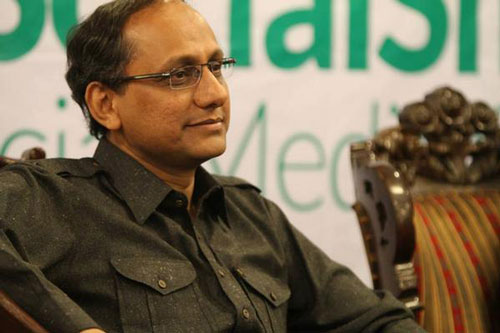Local Government Minister, Saeed Ghani, has reiterated that the provincial government has empowered local representatives with political, financial, and administrative authority under the Sindh Local Government Act 2013. He announced that soon a guideline would be issued to Union Committees and Union Councils on how to utilize the OZT (Octroi and Zila Tax) funds effectively. Speaking on Friday in response to multiple attention notices from Sindh Assembly members, Ghani discussed key issues such as water supply and sewage management, specifically in Hyderabad’s Latifabad and Qasimabad areas.
Saeed Ghani pointed out that despite the installation of generators at sewage pumping stations, power outages hinder their optimal performance. He emphasized that Hyderabad’s sewage system relies heavily on these pumping stations, and while seven of them in Latifabad are operational, the intermittent power cuts cause issues even with backup generators in place. Responding to questions from opposition member Mohammad Farooq about the transfer of powers to town and UC chairpersons, the minister affirmed that the Sindh Local Government Act 2013 had vested significant authority in elected local representatives. Ghani said a guideline on how UCs can best allocate and utilize the OZT funds would soon be released, ensuring transparency and efficient use of resources.
He added that all municipal bodies have the powers necessary to perform their duties effectively under this law. He also clarified that the Sindh Solid Waste Management Board (SSWMB) was not working independently but only took responsibility for waste collection after receiving approvals from District Municipal Corporations (DMCs). Ghani explained that while garbage collection had been under DMCs, they had transferred this authority to SSWMB through resolutions from their councils. Addressing concerns regarding water and sewage issues in Karachi, the minister explained that the Karachi Water and Sewerage Corporation (KW&SC) operates under a law dating back to the 1990s, which originally placed powers with the provincial government.
These powers were later transferred to former Karachi mayors Naimatullah Khan and Mustafa Kamal and now rest with the current mayor, a demand made by all political parties in the assembly. Ghani rejected the notion that local government representatives lacked authority, reiterating that all necessary political, administrative, and financial powers had been granted to them. He assured those efforts to stabilize their finances included increasing OZT shares and ensuring sufficient funds for salaries and pensions of town employees. In response to opposition member Shariq Jamal’s attention notice, Saeed Ghani stated that the Town Municipal Corporation of Model Colony had already submitted a scheme through the Karachi Infrastructure Development (CLICK) project and that work on it would commence soon. Furthermore, repairs and patchwork on roads affected by recent rains would begin on September 15. Ghani further said that the Karachi Metropolitan Corporation (KMC) was starting work on over 100 roads, allocating 1.4 billion rupees for road repairs, 200 million for streetlights, and 400 million for bridge maintenance. He assured that any financial issues faced by town administrations would be resolved through the provincial government if necessary.









